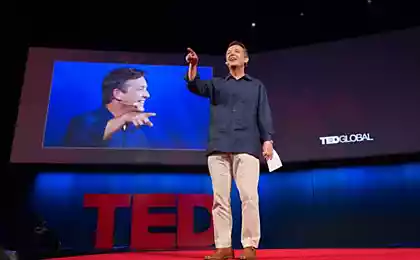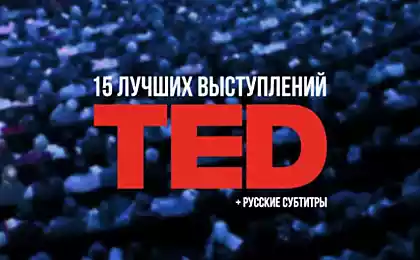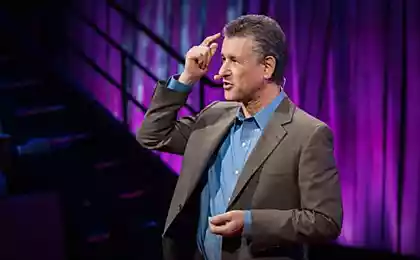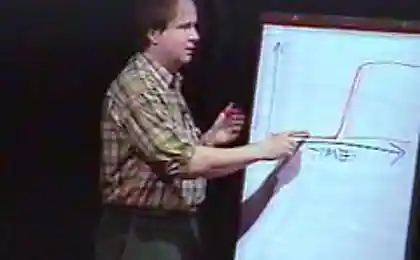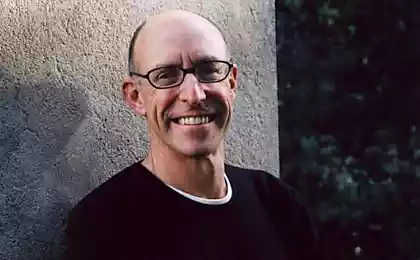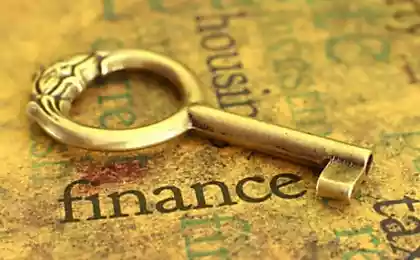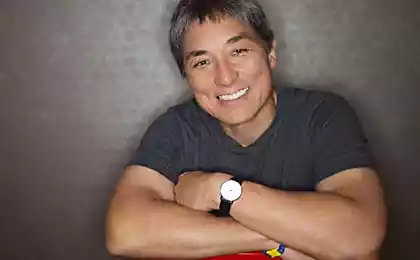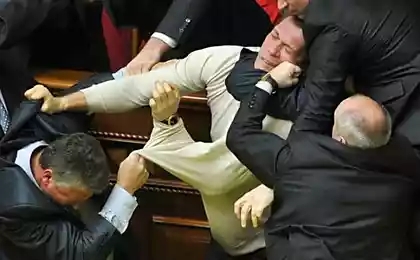445
4 Golden rules of public speaking from TED curator
Presents Damon brown, entrepreneur and author of Inc.magazine
When we hear the words "TED lecture", once there is a way short, powerful presentations on some important world problem. I am at this conference for many years, and although I had already spoken at TED, I still feel delight when another impressive speaker finds this difficult balance between cognition and education.
Entrepreneur Chris Anderson is the genius behind the brand of TED, and he's a great speaker. He is preparing to release "Official TED guide to public speaking". But it has yet to be published, here are the four main rules that make TED talks so special. As an example, I also cite several statements that clearly reflect the argument of Anderson.
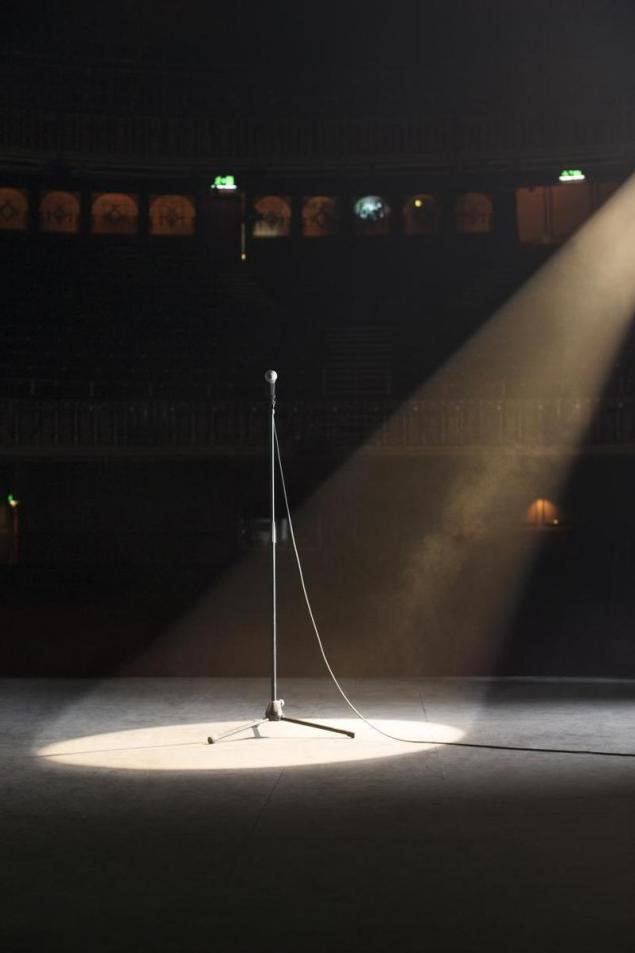
1. Keep to one big idea
The experts have a big problem: they know too much. And there is great temptation to squeeze into the 18 (or even less) minutes that you are standing on the stage, all that you know. Anderson advises to do the opposite: "Okay explain one thing — and provide its context."
A good illustration is the performance of Brian Greene's "Is our universe the only universe?" I was present in the hall in 2012, when green was giving this lecture and just shocked me, as it is only 20 minutes to explain string theory. This is the focus.
https://embed-ssl.ted.com/talks/lang/ru/brian_greene_why_is_our_universe_fine_tuned_for_life.html
2. Give people a reason for compassion
Anderson says that it is all about curiosity. It is not enough to have a great story or concept you want the audience could identify with the hero and then the audience will want to know more. And for this we need to put ourselves in their place.
I was struck by the speech of Joshua Prager's "In search of the man who broke my neck". The journalist tells how he was hit by a bus, after which he was partially paralyzed, and twenty years later he searched for that driver.
https://embed-ssl.ted.com/talks/lang/ru/joshua_prager_in_search_for_the_man_who_broke_my_neck.html
3. Build a story based on familiar concepts
"Put your idea piece by piece, of the concepts that your audience already understands," says Anderson. Need to land your big and beautiful theory.
My favorite example is the "iPod for $ 8 billion" Rob reed. This brilliant and brief lecture in exaggerated form tells about the mind-blowing lawsuits against Napster, Limewire, and Rhapsody — own company reed.
https://embed-ssl.ted.com/talks/lang/ru/rob_reid_the_8_billion_ipod.html
4. Extend this idea, which is worth sharing
Anderson formulates this as follows. "Ask yourself: who benefits this idea? If it is beneficial only to you or your organisation then, sorry, it is unlikely to share. Audience all at once you will see."
I think a great example is a speech by Elizabeth Gilbert on "Success, failure and the desire to work on." The famous writer says, as a continuation of her bestseller failed miserably is an honest, sincere confession, and how failures may all of us benefit. published
SUBSCRIBE to OUR youtube channel that allows you to watch online, download from YouTube free video about the recovery, the rejuvenation of man. Love for others and ourselves, as the feeling of high vibrations — an important factor for improvement .
https://embed-ssl.ted.com/talks/lang/ru/elizabeth_gilbert_success_failure_and_the_drive_to_keep_creating.html
Put LIKES and share with your FRIENDS!
www.youtube.com/channel/UCXd71u0w04qcwk32c8kY2BA/videos
Subscribe -https://www.facebook.com//
P. S. And remember, only by changing their consumption — together we change the world! ©
Join us in Facebook , Vkontakte, Odnoklassniki
Source: ideanomics.ru/?p=5798
When we hear the words "TED lecture", once there is a way short, powerful presentations on some important world problem. I am at this conference for many years, and although I had already spoken at TED, I still feel delight when another impressive speaker finds this difficult balance between cognition and education.
Entrepreneur Chris Anderson is the genius behind the brand of TED, and he's a great speaker. He is preparing to release "Official TED guide to public speaking". But it has yet to be published, here are the four main rules that make TED talks so special. As an example, I also cite several statements that clearly reflect the argument of Anderson.

1. Keep to one big idea
The experts have a big problem: they know too much. And there is great temptation to squeeze into the 18 (or even less) minutes that you are standing on the stage, all that you know. Anderson advises to do the opposite: "Okay explain one thing — and provide its context."
A good illustration is the performance of Brian Greene's "Is our universe the only universe?" I was present in the hall in 2012, when green was giving this lecture and just shocked me, as it is only 20 minutes to explain string theory. This is the focus.
https://embed-ssl.ted.com/talks/lang/ru/brian_greene_why_is_our_universe_fine_tuned_for_life.html
2. Give people a reason for compassion
Anderson says that it is all about curiosity. It is not enough to have a great story or concept you want the audience could identify with the hero and then the audience will want to know more. And for this we need to put ourselves in their place.
I was struck by the speech of Joshua Prager's "In search of the man who broke my neck". The journalist tells how he was hit by a bus, after which he was partially paralyzed, and twenty years later he searched for that driver.
https://embed-ssl.ted.com/talks/lang/ru/joshua_prager_in_search_for_the_man_who_broke_my_neck.html
3. Build a story based on familiar concepts
"Put your idea piece by piece, of the concepts that your audience already understands," says Anderson. Need to land your big and beautiful theory.
My favorite example is the "iPod for $ 8 billion" Rob reed. This brilliant and brief lecture in exaggerated form tells about the mind-blowing lawsuits against Napster, Limewire, and Rhapsody — own company reed.
https://embed-ssl.ted.com/talks/lang/ru/rob_reid_the_8_billion_ipod.html
4. Extend this idea, which is worth sharing
Anderson formulates this as follows. "Ask yourself: who benefits this idea? If it is beneficial only to you or your organisation then, sorry, it is unlikely to share. Audience all at once you will see."
I think a great example is a speech by Elizabeth Gilbert on "Success, failure and the desire to work on." The famous writer says, as a continuation of her bestseller failed miserably is an honest, sincere confession, and how failures may all of us benefit. published
SUBSCRIBE to OUR youtube channel that allows you to watch online, download from YouTube free video about the recovery, the rejuvenation of man. Love for others and ourselves, as the feeling of high vibrations — an important factor for improvement .
https://embed-ssl.ted.com/talks/lang/ru/elizabeth_gilbert_success_failure_and_the_drive_to_keep_creating.html
Put LIKES and share with your FRIENDS!
www.youtube.com/channel/UCXd71u0w04qcwk32c8kY2BA/videos
Subscribe -https://www.facebook.com//
P. S. And remember, only by changing their consumption — together we change the world! ©
Join us in Facebook , Vkontakte, Odnoklassniki
Source: ideanomics.ru/?p=5798
33 secret for beautiful girls — save yourself!
An indispensable thing for gardeners: smart faucet, which saves up to 30% of the water consumed
